Wednesday, August 6: Mystery Masterclass
Robert Lopresti wrote an article for today, but it was lost during its transit through the aether, and like the completely self-absorbed egotist that I am, I utterly failed to notice it was missing. This is rather embarrassing, as I endeavor never, never to miss anything written by Rob.
So in his stead, I have included some pithy words on writing by an author who went missing into the aether in Mexico in 1913, but whose words are still around, viz., Ambrose Gwinnett Bierce, a true American Master of the short story. The excerpts are from Bierce’s brilliant The Devil’s Dictionary, one of those weighty slender volumes that belong on every reader’s bookshelf. Rob will return next week.
—JLW
SOME DEVILISH DEFINITIONS
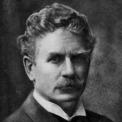
by Ambrose Bierce
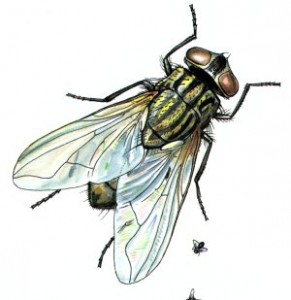 FLY-SPECK, n. The prototype of punctuation. It is observed by Garvinus that the systems of punctuation in use by the various literary nations depended originally upon the social habits and general diet of the flies infesting the several countries. These creatures, which have always been distinguished for a neighborly and companionable familiarity with authors, liberally or niggardly embellish the manuscripts in process of growth under the pen, according to their bodily habit, bringing out the sense of the work by a species of interpretation superior to, and independent of, the writer’s powers. The “old masters” of literature—that is to say, the early writers whose work is so esteemed by later scribes and critics in the same language—never punctuated at all, but worked right along free-handed, without that abruption of the thought which comes from the use of points. (We observe the same thing in children to-day, whose usage in this particular is a striking and beautiful instance of the law that the infancy of individuals reproduces the methods and stages of development characterizing the infancy of races.) In the work of these primitive scribes all the punctuation is found, by the modern investigator with his optical instruments and chemical tests, to have been inserted by the writers’ ingenious and serviceable collaborator, the common house-fly—Musca maledicta. In transcribing these ancient MSS, for the purpose of either making the work their own or preserving what they naturally regard as divine revelations, later writers reverently and accurately copy whatever marks they find upon the papyrus or parchment, to the unspeakable enhancement of the lucidity of the thought and value of the work. Writers contemporary with the copyists naturally avail themselves of the obvious advantages of these marks in their own work, and with such assistance as the flies of their own household may be willing to grant, frequently rival and sometimes surpass the older compositions, in respect at least of punctuation, which is no small glory. Fully to understand the important services that flies perform to literature it is only necessary to lay a page of some popular novelist alongside a saucer of cream-and-molasses in a sunny room and observe “how the wit brightens and the style refines” in accurate proportion to the duration of exposure.
FLY-SPECK, n. The prototype of punctuation. It is observed by Garvinus that the systems of punctuation in use by the various literary nations depended originally upon the social habits and general diet of the flies infesting the several countries. These creatures, which have always been distinguished for a neighborly and companionable familiarity with authors, liberally or niggardly embellish the manuscripts in process of growth under the pen, according to their bodily habit, bringing out the sense of the work by a species of interpretation superior to, and independent of, the writer’s powers. The “old masters” of literature—that is to say, the early writers whose work is so esteemed by later scribes and critics in the same language—never punctuated at all, but worked right along free-handed, without that abruption of the thought which comes from the use of points. (We observe the same thing in children to-day, whose usage in this particular is a striking and beautiful instance of the law that the infancy of individuals reproduces the methods and stages of development characterizing the infancy of races.) In the work of these primitive scribes all the punctuation is found, by the modern investigator with his optical instruments and chemical tests, to have been inserted by the writers’ ingenious and serviceable collaborator, the common house-fly—Musca maledicta. In transcribing these ancient MSS, for the purpose of either making the work their own or preserving what they naturally regard as divine revelations, later writers reverently and accurately copy whatever marks they find upon the papyrus or parchment, to the unspeakable enhancement of the lucidity of the thought and value of the work. Writers contemporary with the copyists naturally avail themselves of the obvious advantages of these marks in their own work, and with such assistance as the flies of their own household may be willing to grant, frequently rival and sometimes surpass the older compositions, in respect at least of punctuation, which is no small glory. Fully to understand the important services that flies perform to literature it is only necessary to lay a page of some popular novelist alongside a saucer of cream-and-molasses in a sunny room and observe “how the wit brightens and the style refines” in accurate proportion to the duration of exposure.
***
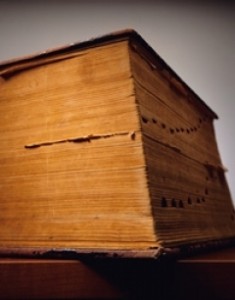 NOVEL, n. A short story padded. A species of composition bearing the same relation to literature that the panorama bears to art. As it is too long to be read at a sitting the impressions made by its successive parts are successively effaced, as in the panorama. Unity, totality of effect, is impossible; for besides the few pages last read all that is carried in mind is the mere plot of what has gone before. To the romance the novel is what photography is to painting. Its distinguishing principle, probability, corresponds to the literal actuality of the photograph and puts it distinctly into the category of reporting; whereas the free wing of the romancer enables him to mount to such altitudes of imagination as he may be fitted to attain; and the first three essentials of the literary art are imagination, imagination and imagination. The art of writing novels, such as it was, is long dead everywhere except in Russia, where it is new. Peace to its ashes—some of which have a large sale.
NOVEL, n. A short story padded. A species of composition bearing the same relation to literature that the panorama bears to art. As it is too long to be read at a sitting the impressions made by its successive parts are successively effaced, as in the panorama. Unity, totality of effect, is impossible; for besides the few pages last read all that is carried in mind is the mere plot of what has gone before. To the romance the novel is what photography is to painting. Its distinguishing principle, probability, corresponds to the literal actuality of the photograph and puts it distinctly into the category of reporting; whereas the free wing of the romancer enables him to mount to such altitudes of imagination as he may be fitted to attain; and the first three essentials of the literary art are imagination, imagination and imagination. The art of writing novels, such as it was, is long dead everywhere except in Russia, where it is new. Peace to its ashes—some of which have a large sale.
***
PLAGIARIZE, v. To take the thought or style of another writer whom one has never, never read.
***
SERIAL, n. A literary work, usually a story that is not true, creeping through several issues of a newspaper or magazine. Frequently appended to each installment is a “synopsis of preceding chapters” for those who have not read them, but a direr need is a synopsis of succeeding chapters for those who do not intend to read them. A synopsis of the entire work would be still better.
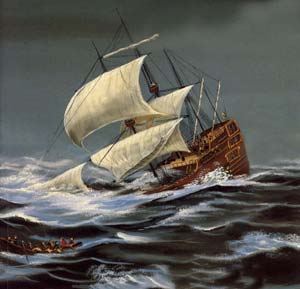 The late James F. Bowman was writing a serial tale for a weekly paper in collaboration with a genius whose name has not come down to us. They wrote, not jointly but alternately, Bowman supplying the installment for one week, his friend for the next, and so on, world without end, they hoped. Unfortunately they quarreled, and one Monday morning when Bowman read the paper to prepare himself for his task, he found his work cut out for him in a way to surprise and pain him. His collaborator had embarked every character of the narrative on a ship and sunk them all in the deepest part of the Atlantic.
The late James F. Bowman was writing a serial tale for a weekly paper in collaboration with a genius whose name has not come down to us. They wrote, not jointly but alternately, Bowman supplying the installment for one week, his friend for the next, and so on, world without end, they hoped. Unfortunately they quarreled, and one Monday morning when Bowman read the paper to prepare himself for his task, he found his work cut out for him in a way to surprise and pain him. His collaborator had embarked every character of the narrative on a ship and sunk them all in the deepest part of the Atlantic.
***
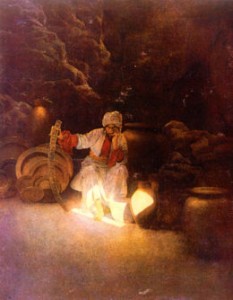 ROMANCE, n. Fiction that owes no allegiance to the God of Things as They Are. In the novel the writer’s thought is tethered to probability, as a domestic horse to the hitching-post, but in romance it ranges at will over the entire region of the imagination—free, lawless, immune to bit and rein. Your novelist is a poor creature, as Carlyle might say—a mere reporter. He may invent his characters and plot, but he must not imagine anything taking place that might not occur, albeit his entire narrative is candidly a lie. Why he imposes this hard condition on himself, and “drags at each remove a lengthening chain” of his own forging he can explain in ten thick volumes without illuminating by so much as a candle’s ray the black profound of his own ignorance of the matter. There are great novels, for great writers have “laid waste their powers” to write them, but it remains true that far and away the most fascinating fiction that we have is “The Thousand and One Nights.”
ROMANCE, n. Fiction that owes no allegiance to the God of Things as They Are. In the novel the writer’s thought is tethered to probability, as a domestic horse to the hitching-post, but in romance it ranges at will over the entire region of the imagination—free, lawless, immune to bit and rein. Your novelist is a poor creature, as Carlyle might say—a mere reporter. He may invent his characters and plot, but he must not imagine anything taking place that might not occur, albeit his entire narrative is candidly a lie. Why he imposes this hard condition on himself, and “drags at each remove a lengthening chain” of his own forging he can explain in ten thick volumes without illuminating by so much as a candle’s ray the black profound of his own ignorance of the matter. There are great novels, for great writers have “laid waste their powers” to write them, but it remains true that far and away the most fascinating fiction that we have is “The Thousand and One Nights.”




















Thanks for the Bierce! One of the great short-story writers and one of the first Americans to write unromantically about war. (He was IN the Civil War) Just as well this Master Author is NOT available to blog here today; the controversy he might inspire could burn out the server! (Footnote: Just read “The King In Yellow” by Robt. W. Chambers, a writer influenced by Bierce and a link between his era and the era of Robert Bloch.)